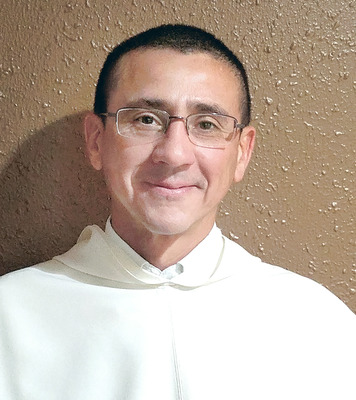
A platform that encourages healthy conversation, spiritual support, growth and fellowship

NOLACatholic Parenting Podcast
A natural progression of our weekly column in the Clarion Herald and blog

The best in Catholic news and inspiration - wherever you are!
‘Lord, I believe, and, prostrating himself, he worshiped him’
-
 Father Manuel Solorzano
Father Manuel Solorzano
Hispanic Apostolate
Dear brothers and sisters, Lent moves toward Easter, and, on this Sunday, we focus our attention on blindness.We encounter a blind man who sees and the supposed eyesight of the people who are blind, and, above all, the pedagogy of Jesus, which allows us to value ourselves and to seek the dignity of all mankind.
In the first chapter of Samuel, when he is choosing the future king, he leans toward the eldest son, but the Lord says to Samuel: “Do not consider his appearance or height, for I have rejected him; the Lord does not see as man does. For man sees the outward appearance, but the Lord sees the heart.” The chosen one is the youngest son.
In today’s evangelical texts, there is a man who has been blind since birth. Before him, there are men who pride themselves as the religious leaders of their people. This man relies completely on others; religiously speaking, his blindness comes from his parents’ sins. Jesus anointed the man’s eyes with mud and said to him, “Go, wash in the pool of Siloam.” So, the man, who was considered incapable of doing anything without help, went, washed and returned seeing. To open your eyes and recover personal freedom is something we must do ourselves. On top of that, it was the Sabbath, and there is a man who sees.
The Pharisees are accustomed to determining what each man can do, to distinguish the good from the bad, the traditions for Sabbath, to justify themselves with the excuse of guiding the blind. This man has become a free thinker and incites indignation and fear among the leaders. They say to him, “What do you say about him (Jesus), since he has opened your eyes?” He says, “He is a prophet. Whether he is a sinner, I do not know. One thing I do know, though, that I was blind, and now I see. I have told you already, and you would not listen. Why do you want to hear it again? Do you also want to become his disciples?” He allows himself to be ironic in that seeing has given him the courage to challenge them.
“Why, this is an amazing thing! You do not know where he comes from,” the Pharisees say to him. “You were born in utter sin, and would you teach us?” They cast him out.
It is the same story of all those who, like the prophets, dare to look at life in another way. It also happens to Jesus at Easter. They both see what needs to be seen, and that is why the blind man believed.
We are constantly bothered by men who see clearly, and we may even admire them, but to join them makes us uncomfortable. We must be the light of the world, but too many of us think with balance, and then everything becomes chiaroscuro (contrasted).
In the second reading to the Ephesians, St. Paul tells us, “For at one time you were darkness, but now you are light in the Lord. Walk as the children of light and try to discern what is pleasing to the Lord; take no part in the unfruitful works of darkness, but instead expose them. For it is shameful even to speak of the things that they do in secret. But when anything is exposed by the light, it becomes visible, for anything that becomes visible is light. Therefore it says: ‘Awake, O sleeper, and arise from the dead, and Christ will shine on you.’’’ Terrible are the men who walk with their eyes wide open, the children of the light.
It’s true, we are not as blind as we think and to consider ourselves to be blind is to begin to see clearly. We don’t see clearly enough to think that we are already saved. It is not a sin to be blind, but it is a sin to not want to open your eyes, to look the other way. Let us remove the mud from our eyes and look beyond what we are used to seeing. Remember the old saying, “Do not be ostriches that bury their heads, but eagles that soar the horizon.”




